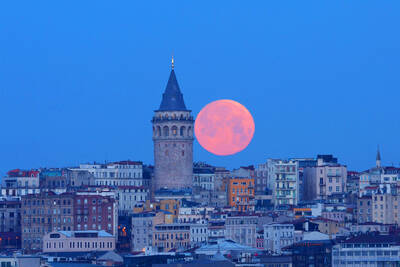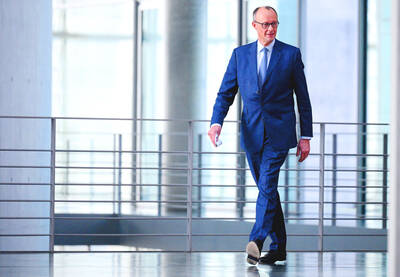Talk about sticker shock.
Cubans are flocking to Havana car dealerships as a new law takes effect eliminating a special permit requirement that has greatly restricted vehicle ownership in the country. To their dismay on Friday, the first day the law was in force, they found sharply hiked prices, some of them light years beyond all but the most well-heeled islanders.
A new Kia Rio hatchback that starts at US$13,600 in the US sells for US$42,000 in Cuba, while a fresh-off-the-lot Peugeot 508 family car, the most luxurious of which lists for the equivalent of about US$53,000 in the UK, will set you back a cool US$262,000.
“Between all my family here in Cuba and over in Miami, we couldn’t come up with that kind of money,” said Gilbert Losada, a 28-year-old musical director. “We’re going to wait and see if they lower the prices, which are really crazy. We’re really disappointed.”
Cuba’s Communist-run government traditionally has placed huge markups on retail goods and services paid for with hard currency, a policy that amounts to a tax on people who can afford such goods. The practice applies to everything from dried pasta, to household appliances, to Internet access.
The astronomical sticker prices on the cars will likely mean fewer sales and the state leaving money on the table, said Philip Peters, a longtime Cuba analyst and president of the Virginia-based Cuba Research Center.
“There’s a lot more money to be made at lower price points,” Peters said. “It’s a short-sighted tax-man’s mentality... Paradoxically, they mark it up so much that they’re not going to make any money. However, that’s the mentality.”
Havana legalized the sale of used cars by private individuals in 2011. However, longstanding rules remained in place requiring Cubans to obtain a Cuban Transportation Ministry permit to purchase a new or used car from state-run dealerships. Permission took months or years to obtain, resulting in a black market in which car buyers would often quickly flip them for a big profit.
The new law eliminates the need for a permit, but does not allow Cubans to import automobiles directly. The government retains its monopoly on that, and alone decides a vehicle’s market value. Some exceptions will still exist allowing diplomatic missions and foreign entities to import vehicles.
The Ferrari-like price schedules for even mundane new cars are a signal that automotive scarcity and high demand will likely continue to reign in Cuba, which is famous for the 1950s US cars that still rumble through the streets long after they became museum pieces elsewhere.
Because replacing a car is so difficult, those lucky enough to own a finned Detroit classic or a boxy Russian import go to great lengths to keep them on the road as long as possible, swapping in makeshift parts and resorting to creative soldering.
At a used car dealership in western Havana on Friday, there were a few relatively affordable options.
A 1997 BMW was the cheapest vehicle and the first to sell shortly after the dealership opened at 8am It went for US$14,457 to a young man who declined to talk to reporters, so it was not known many kilometers it had previously logged.
However, even many of the used cars had eye-popping asking prices, such as a 2009 Hyundai minivan that listed for US$110,000.
“Let’s see if a revolutionary worker who lives honorably on his salary can come and buy a car at these prices,” said Guillermo Flores, a 27-year-old computer engineer. “This is a joke on the people.”
In the past, permit holders typically bought used vehicles, often former rentals with high odometer readings that went for between US$5,000 and US$8,000. New imports generally sold at about a 100 percent markup before. There was no explanation for the sudden, across-the-board spike in prices.
Most Cubans still earn government salaries that average about US$20 a month, though some make significantly more as musicians, artists, employees of foreign companies and diplomats and doctors sent on foreign missions. Many others get financial support from relatives overseas.
However, some who had managed to scrape together some savings said they are now priced out of the market.
“With these prices ... those who will be able to buy are the privileged, or the bandits,” said Alfredo Boue, a 25-year-old cook. “I think the bandits are not the ones [stealing] in the streets, but the people who set these prices.”
People were aghast and angry as they perused a list of prices posted outside the dealership. Some said it felt like something out of science fiction. One woman asked sarcastically if there were any bicycles, because surely that would be the only thing she could afford.
Priority was given to people who had obtained a permit under the old system, but Antonio Diaz, a 66-year-old retiree who came expecting to pay US$5,000, left empty-handed and disgusted.
“What am I going to do with this letter?” he said, brandishing his now-useless permit. “I can’t buy anything. I don’t have the money. That was supposed to be the car for my old age, which I was going to buy after a lifetime of work.”
“I’ll have to resign myself to living without a car,” Diaz said, shaking his head.

ANGER: A video shared online showed residents in a neighborhood confronting the national security minister, attempting to drag her toward floodwaters Argentina’s port city of Bahia Blanca has been “destroyed” after being pummeled by a year’s worth of rain in a matter of hours, killing 13 and driving hundreds from their homes, authorities said on Saturday. Two young girls — reportedly aged four and one — were missing after possibly being swept away by floodwaters in the wake of Friday’s storm. The deluge left hospital rooms underwater, turned neighborhoods into islands and cut electricity to swaths of the city. Argentine Minister of National Security Patricia Bullrich said Bahia Blanca was “destroyed.” The death toll rose to 13 on Saturday, up from 10 on Friday, authorities

RARE EVENT: While some cultures have a negative view of eclipses, others see them as a chance to show how people can work together, a scientist said Stargazers across a swathe of the world marveled at a dramatic red “Blood Moon” during a rare total lunar eclipse in the early hours of yesterday morning. The celestial spectacle was visible in the Americas and Pacific and Atlantic oceans, as well as in the westernmost parts of Europe and Africa. The phenomenon happens when the sun, Earth and moon line up, causing our planet to cast a giant shadow across its satellite. But as the Earth’s shadow crept across the moon, it did not entirely blot out its white glow — instead the moon glowed a reddish color. This is because the

DEBT BREAK: Friedrich Merz has vowed to do ‘whatever it takes’ to free up more money for defense and infrastructure at a time of growing geopolitical uncertainty Germany’s likely next leader Friedrich Merz was set yesterday to defend his unprecedented plans to massively ramp up defense and infrastructure spending in the Bundestag as lawmakers begin debating the proposals. Merz unveiled the plans last week, vowing his center-right Christian Democratic Union (CDU)/Christian Social Union (CSU) bloc and the center-left Social Democratic Party (SPD) — in talks to form a coalition after last month’s elections — would quickly push them through before the end of the current legislature. Fraying Europe-US ties under US President Donald Trump have fueled calls for Germany, long dependent on the US security umbrella, to quickly

Local officials from Russia’s ruling party have caused controversy by presenting mothers of soldiers killed in Ukraine with gifts of meat grinders, an appliance widely used to describe Russia’s brutal tactics on the front line. The United Russia party in the northern Murmansk region posted photographs on social media showing officials smiling as they visited bereaved mothers with gifts of flowers and boxed meat grinders for International Women’s Day on Saturday, which is widely celebrated in Russia. The post included a message thanking the “dear moms” for their “strength of spirit and the love you put into bringing up your sons.” It